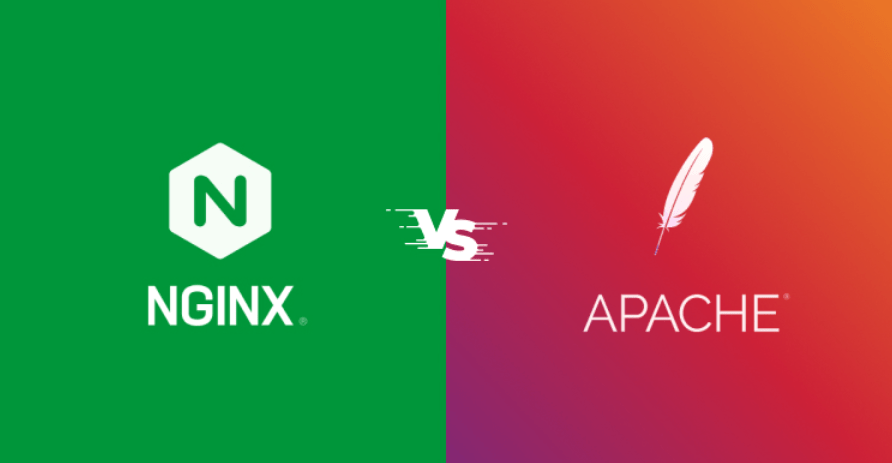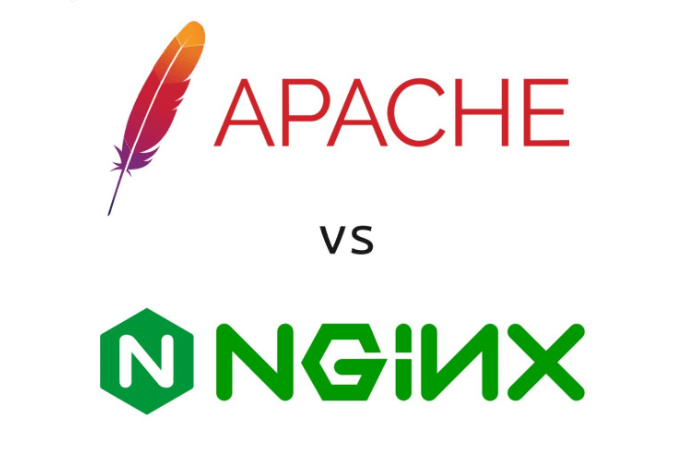When it comes to choosing a web server for your website or application, two names often come to mind: There are two specific servers which are Apache and Nginx. Another powerful pair of http servers is Apache and Nginx both of which are widely used by developers and sysadmins. This guide aims at expanding and comparing Apache and Nginx and the reader will be in a better position to determine which web server is suitable to fulfill their needs after going through this blog post.
Understanding the Basics of Apache and Nginx
Apache is the result of the Apache Software Foundation and has been the staple for many years in the field of web servers receiving praise for its set of features, stability, and versatility. Apple Inc.’s IPv6 began sometime in the mid-90s and has developed a firm record of being amongst the internet’s key structure elements. Appropriate and correct, it can be stated that Apache software has vast flexibility and corresponding possibility of adaptation which is suitable for such a various class of applications as web applications working in various environments. This has made it popular and still in use up to the current digital platform used by different companies.
On the other hand, Nginx, which is pronounced as ‘Engine-X,’ appeared in the early 2000s to defy the conventional architectural frameworks, which was event-based asynchronous architecture. Thanks to this innovative design, Nginx can handle a great many connections concurrently, whereas the use of resources remains mere fractions of itself, thus making it rather unique in the context of today’s high demand for high-processing, yet low-consumption systems. The specificity of its serving static content and high traffic loads has quickly made it popular among the modern complex web applications and services that require scalability and high speeds.
Apache and Nginx are both web servers, but they have different philosophies and architectures for a simple reason – the needs of web infrastructure are different. Before we look at the detailed differences, it’s necessary to note that Apache can be characterized as a versatile tool with a dense set of functions, while Nginx is oriented at the top-priority web usage at the present state. It describes the type of protection that each category has and establishes a basis for the deeper analysis of the further identification of how beneficial aspects are when it comes to choosing the most appropriate web server for their projects.
Performance Comparison: Apache vs. Nginx
In the arena of web server performance, the duel between Apache and Nginx is a matter of keen interest to developers and administrators alike. The primary distinction lies in how each server handles connections. Nginx, with its event-driven architecture, excels in managing a high volume of concurrent connections without breaking a sweat. This design efficiency makes it a go-to for dynamic, high-traffic websites or applications, where the ability to serve numerous requests simultaneously is crucial.
Apache, employing a process- or thread-based model, approaches connection handling more traditionally. Although this approach may not match the raw efficiency of Nginx in handling concurrent connections, Apache’s performance is by no means sluggish. With the right optimization strategies, such as employing the event MPM (Multi-Processing Module), Apache can significantly improve its ability to manage multiple connections, thereby closing the gap in performance metrics when compared to Nginx.
The choice between Apache and Nginx should thus consider the specific performance demands of the website or application in question. For static content or heavily cached dynamic content, Nginx’s lean and fast handling offers a distinct advantage. Still, Apache is flexible and stable which is more than enough to consider it, especially in those situations where the application of its numerous features and modularity might be useful to fine-tune the server performance to the maximum.
Configuration and Flexibility
Delving into the realm of configuration and flexibility, the distinct approaches of Apache and Nginx become evident, each catering to different preferences and skill sets. Apache has a well-known and complex configuration system. It operates with. Rules or the use of access files that a user can implement configuration changes relating to the directory or path without having to restart the server which is convenient in instances where minor changes are being made.
At the same time, the exposure of parts ensures the intricate reconfigurability, making Apache one of the tried and true choices for users, who prefer a great deal of control and the possibility to adjust the reactions of the server depending on specific needs.
On the flip side, Nginx favors simplicity and efficiency in its configuration ethos. It has a simple prescriptive syntax for the configuration that is optimized for speed, looks less intimidating for new developers, and is preferred for task that needs to be done quickly.
Nginx’s configuration files are straightforward, facilitating an easier learning curve for basic setups while still maintaining the ability to handle advanced configurations through directive blocks. This balance of simplicity and power appeals to users looking for a configuration system that is easy to master yet potent enough to handle high-performance requirements.
The contrast in configuration philosophies between Apache and Nginx highlights the broader choice at hand: the comprehensive control and customization offered by Apache, versus the straightforward, performance-oriented approach of Nginx. Each server’s configuration strategy underscores its core strengths, providing users with distinct pathways to achieving optimal server performance and flexibility.
Security Features and Considerations
Characterizing Apache and Nginx for the security aspect idealizes it is necessary to know that both the platforms offer a set of security layers to protect from cyber threats. Being an old player in the web server segment, Apache had fewer chances to combat a large number of threats; this is accompanied by a strong security team that rapidly responds to new risks by releasing updates and fixes. It has a wide variety of modules that can provide very detailed security settings and protection from predetermined threats or for compliance with specified standards.
For instance, the famous Web server Nginx has a very lean design which, with a certain logic, means that it has less of a surface area to attract certain kinds of attacks. This one relies intensely on SSL/TLS for connection and has good compatibility with the future development security solutions and measures with high protection against the various types of DDoS attacks and others for secure transactions.
While both servers are capable of high-security standards, the choice between Apache and Nginx might come down to the specific security needs of your application and the environment in which it operates, alongside how security measures integrate with overall performance and configuration preferences.
Community Support and Documentation
The vibrancy and accessibility of a community and comprehensive documentation significantly impact the ease of use and troubleshooting of web server software. Apache, with its origins stretching back over two decades, boasts a robust, global community. Communities of developers and users are numerous and it can provide all sorts of assistance to brand new users as well as to the advanced ones.
Likewise, although it is younger, Nginx has quickly developed a solid fan base almost instantly. Its fans actively participate in creating a pool of guides, tutorials, and discussions helpful when it comes to the subject’s subtleties. Each of the web servers has comprehensive official documentation that includes accurate, up-to-date information about the very basics as well as highly specific configuration and performance tuning issues.
These resources are invaluable for users looking to customize their web server to meet specific needs or to resolve potential issues. Whether you lean towards Apache for its rich features and flexibility or Nginx for its performance and efficiency, the wealth of community-generated content and official documentation ensures you have the support you need to make the most of your web server choice.
Real-world Use Cases and Adoption
Apache and Nginx have different applications in the real-world setting to prove their versatility in different contexts. Apache has a large modular system and is rather flexible, which is why it is used to host heavy-traffic sites and applications that require numerous optimizing features like user sessions, rewrite maps, and special error processing. Since it offers considerable flexibility in these areas Apache has become one of the most popular services for web hosting services, educational institutions, and enterprise-level content management systems where customization is of prime importance.
On the other hand, Nginx performs very well in areas that require fast and effective solutions. It can therefore accept large volumes of simultaneous connections and barely overdent any resource, which has made some of the biggest and most visited websites in the world look at Apache as their sole web server. Popular streaming services, active social media TV, and large e-commerce uber-popularizers often employ Nginx as an HTTP server capable of delivering web content quickly while coping with increased load.
Also, the possibilities in setups including but not limited to reverse proxies, load balancing, as well as caching make Nginx a core component of present-day architectures of web applications that are built for scale and high availability. Therefore, discussing the areas of application of both systems always emphasizes their opportunity to act as instruments in the nowadays versatile sphere of Web technologies for completing certain project tasks and managing certain kinds of project-related issues.
Making the Right Choice for Your Needs
Deciding between Apache and Nginx necessitates a nuanced understanding of your project’s demands and future growth trajectory. If your endeavor values a vast array of features and desires the ability to fine-tune and customize on a granular level, Apache stands out as a solid choice. Its proven flexibility and extensive module library cater to complex, feature-dense environments.
On the other hand, if your priority is achieving high efficiency, handling large volumes of concurrent connections, or scaling effortlessly under load, Nginx presents itself as the go-to option. Because of how it can quickly perform on limited resources and the timely sequence of activities, it is suitable for regularly updating multiple websites and applications.
Communal assets and documents are also something you have to take into consideration for the ease of facing issues and extending the decision. Think about which server corresponds to the specialties of your team and the objectives of your operation. Whether prioritizing customization capabilities with Apache or leaning towards the efficiency and scalability of Nginx, aligning the web server’s strengths with your project’s requirements will guide you to the optimal choice.



